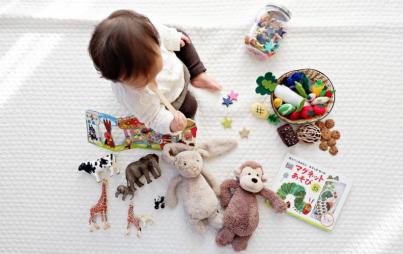
Maybe it's not the clothes we wear that define our character, value, or worth. And maybe they don't even create a responsibility for how others view us, or treat us. Instead, perhaps our clothes are simply what we put on, to keep us warm or cool, or because they feel soft or make us feel beautiful. Maybe they are personal, and entirely our own decision. Even if we happen to be children.
In case you've been living under a rock, school dress codes are alive and well, and coming under fire from every possible direction lately. Not even the prom is safe.
But, yesterday, shit got real. When I picked up my seven-year-old daughter from school, she was visibly upset. She told me that a teacher said that she wasn't allowed to wear her sundress at school. And so she covered herself up in a heavy sweatshirt, refusing to take it off, even as she became sweaty and overheated.
I've read stories like these. I knew things like this happened. But not here in Seattle, I thought. Not in our little bubble of progressiveness. But yesterday it was my daughter in a pineapple-print sundress who looked at me with confusion and asked me one simple question: "Why can't I wear my dress to school?"
I didn't know what to say then, and I don't know what to say now. Her school doesn't seem to have a dress code that prohibits tank-style dresses, but even if it did, I still wouldn't know why. Is it to protect my daughter from the terrifying risk of... shoulder exposure? Because that's pretty much the only answer that I can come up with that applies to a classroom full of seven-year-olds.
But, let's say it was my teenage daughter who wasn't allowed to wear tank tops to school instead. At her high school, the administration must not enforce a dress code because I've seen actual butt cheeks hanging out of girls' skirts. But, assuming that the administration had and enforced a dress code there, would it make any more sense?
Most people would probably say yes. They would argue that dress codes prepare students for the "real world" where clothing creates a professional appearance or that dress codes help create a respectful learning environment. If they were sexist, they might even suggest that exposed shoulders are "sexually distracting" to the boys.
Majority or not, I think those people are wrong. Sure, people may make assumptions about you based on how you dress. But, like most things in life, the assumptions people make about you tell you far more about them than you. If glimpsing a bra strap is really a dealbreaker in a career setting, it's probably not a very good place to work. And, if someone believes that the length of your skirt is how you earn or show respect, they probably don't know much about respect, either. Certainly, if someone believes that your clothing incites boys to rape, they need a serious education about rape culture.
After sorting through all of the reasons why people claim dress codes are needed, I can't find a single one that holds any weight or that isn't founded in strangely Victorian ideas about girls' bodies.
Girls attend to school to learn, after all, and going around measuring skirt lengths and the width of tank top straps, and even convening prom dress review panels, really doesn't teach anyone much of anything. Except to label their bodies as inappropriate and something to be hidden, that is.
The problem with dress codes is that when we tell our daughters that they must cover their shoulders, legs, and chests, we create shame around their bodies. We imply that they are off-limits and inappropriate. And we teach our sons and daughters that, if a girl bares these "bad" parts, she's no longer worthy of equal respect — heck, maybe she even deserves what she gets. And then we turn to our daughters, look them straight in the eye, and tell them that these dress codes are for their own good.
The only thing that these dress codes protect our daughters from is the consequences of the society that we have created. But it's about damn time that we stop protecting our children from our mistakes, and start creating a society that is worthy of them instead.
Maybe it's not the clothes we wear that define our character, value, or worth. And maybe they don't even create a responsibility for how others view us, or treat us. Instead, perhaps our clothes are simply what we put on to keep us warm or cool, or because they feel soft or make us feel beautiful. Maybe they are personal, and entirely our own decision. Even if we happen to be children.
If it's a progressive idea that women's bodies are our own, it is even more revolutionary to believe that children's bodies are entirely their own. But denying our daughters the right to make their own choices for their own bodies paves the way to stripping them of their rights as women, too. It's a cradle-to-grave business of misogyny, and this culture of slut-shaming is at its foundation.
Many otherwise progressive women are the first to support reproductive rights for women, but falter when it comes to allowing their daughters to take charge of their own bodies in other ways. Instead, they expect them to cede the authority over their bodies first to their parents and next to their school administrators. When they push back, they are told to respect authority. They are stripped of their power and voice and told to do what you are told. And then we wonder why they didn't fight back, or why they didn't tell.
Abolishing dress codes won't solve slut-shaming, rape culture, or misogyny by a long shot. But it would empower our daughters to make their own choices for their own bodies rather than learning to cede their power to an authority figure. And that's a damn good place to start.
And, as a bonus, it would free up an awful lot of time in school to get back to the business of learning. That is, after all, supposed to be the point.








